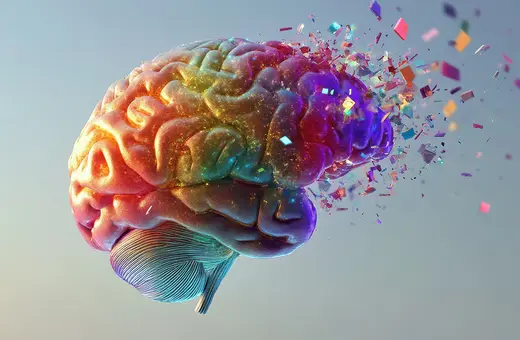In recent years medicine has increasingly recognized a connection between mind and body and how the interaction between the two can affect our health. But in its effort to avoid a problematic separation between mind and body, medicine has been led astray. Due to misunderstanding what in philosophy is called mind-body dualism, trained medical doctors end up over-diagnosing conditions as psychosomatic, automatically construing medically unexplained symptoms as psychiatric problems. This is a philosophical error that ends up putting the health of patients at risk, argues Diane O’Leary.
Medicine and philosophy have an uneasy relationship. Medicine is a practical endeavor, aiming for concrete results. Philosophy, on the other hand, has been construed as a head-in-the-clouds kind of thing since antiquity. Today, outside of medical ethics (which has taken a rightful place within the profession), it’s hard to see how philosophy’s abstractions could make a real difference to the nuts and bolts of diagnosis and treatment.
If medicine were just an applied science of the body, all of this would make good sense. But in the late twentieth century, western medicine reconsidered its exclusive focus on the body and emphatically rejected it. Patients, it turns out, are not just bodies, we’re people. And persons have minds, as well as bodies. This shift raised one modern philosophy’s most intractable issues: the mind-body problem: How do our subjective, mental experiences relate to our objective, physical bodies?
 SUGGESTED READING
How modern medicine became dangerous
By David Healy
SUGGESTED READING
How modern medicine became dangerous
By David Healy
The world would be a very different place if right at that point – in 1977, when George Engel wrote “The need for a new medical model: A challenge for biomedicine” – some philosophers had been called in. The new focus on persons traded heavily on talk about dualism, Descartes, and reductionism. These ideas were invoked to characterize a new form of medical practice, one that recognized the mind’s role in disease, one that understood subjective experience well enough to draw the most objective data from patients’ subjective reports.
___
Since Engel, medicine has understood dualism as something we do, or choose not to do.
___
But the philosophers were not summoned, and elementary mistakes were made. George Engel and his colleagues mis-defined dualism in a way that would fail an intro to philosophy exam. More than that, on the basis of this misunderstanding, they drew misguided conclusions about what philosophy demands of medicine when it comes to mind and body. All of this was accepted without review or challenge by philosophers themselves. Fifty years later these misunderstandings have been woven into the fabric of medicine. Most importantly, in everyday clinical medicine, Engel’s confusions about dualism continue to play a substantial role in patient diagnosis and treatment.
While in philosophy these misunderstandings would not amount to much beyond poor grades or rejected papers, medicine is actually using them as the basis for clinical practice, that is, as tools for addressing the bodily suffering of real people. When they fail – and evidence suggests they do fail as a matter of routine – those people are harmed. All of us are threatened by this problem.





















Join the conversation